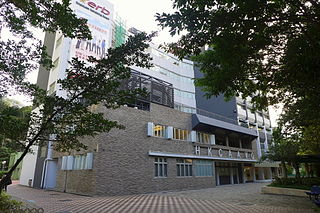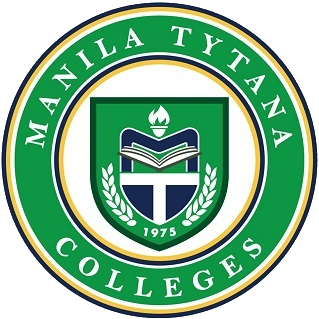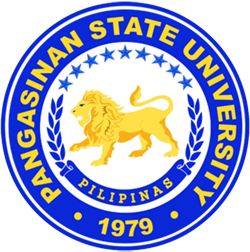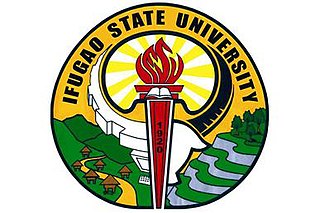
West Visayas State University is a public normal research university located in La Paz, Iloilo City, Western Visayas region of the Philippines. It was established in 1924 as Iloilo Normal School under the tutelage of the Thomasites, but dates back its founding in 1902 as a part of Philippine normal school system with Iloilo National High School established by the American colonial government. It later became West Visayas State College in 1965 and acquired its university status becoming West Visayas State University in 1986.

The Council for Higher Education Accreditation (CHEA) is a United States organization of degree-granting colleges and universities. It identifies its purpose as providing national advocacy for academic quality through accreditation in order to certify the quality of higher education accrediting organizations, including regional, faith-based, private, career, and programmatic accrediting organizations.

The Hong Kong Council for Accreditation of Academic and Vocational Qualifications (HKCAAVQ), (HKCAA) is a statutory body established under the HKCAAVQ Ordinance which came into effect on 1 October 2007.

Manila Tytana Colleges (MTC), or just simply Tytana, the educational arm of the Metrobank group, is a private college in Pasay, Philippines..

The Technological Institute of the Philippines is one of the country’s engineering colleges that also offers programs in computing, architecture, business, education, and the arts. The school is located in Metro Manila, Philippines. It is a private non-sectarian stock school founded on February 8, 1962, by a group of educators headed by Demetrio A. Quirino, Jr. and Teresita U. Quirino.
Medical education in Philippines is principally offered and developed by accredited and government recognized medical schools in the country.
The British Accreditation Council (BAC), also known as The British Accreditation Council for Independent Further and Higher Education, is an educational accreditation agency recognised by the British Government for international students entering the United Kingdom on student visitor visas. The British Accreditation Council was established in 1984, making it the oldest national independent accrediting body for non-EFL independent further and higher education providers in the UK.
The Association of Local Colleges and Universities or simply ALCU is composed of forty (40) local colleges and universities of the Philippines. ALCU is working closely with the Senate Committee on Education, which is headed by Senator Alan Peter Cayetano, in legislations that benefit existing local colleges and universities.

Pangasinan State University also referred to by its acronym PSU or (PangSU)) is a public university in Pangasinan province, Philippines. The university was founded in its current form in 1979, although its origins trace back to the 1920s. PSU is notable for its many locations throughout the province of Pangasinan. It is mandated to provide advanced instruction in the arts, agricultural and natural sciences as well as in technological and professional fields. Its main campus is located in Lingayen, Pangasinan. Other campuses are located in Alaminos, Asingan, Bayambang, Binmaley, Infanta, San Carlos City, Santa Maria, and Urdaneta City. The PSU School of Advanced Studies (SAS) is located in Urdaneta City and the Open University Systems (OUS) is located in Lingayen Campus.

The Commission for Academic Accreditation (CAA) is the national quality assurance and regulatory agency responsible for evaluation and accreditation of higher educational institutions and universities in the United Arab Emirates. Established in 2000, it comes under the country's Ministry of Education.

The Ifugao State University (IFSU) is a government owned and funded university in the Philippines. It was originally established in 1920 as 'Nayon Settlement Farm School' by American educators. It gained its university status under Republic Act 9720 passed by the Philippine Congress and the Senate of the Philippines and duly approved in 2009 by Gloria Macapagal Arroyo, then President of the Republic. With the main campus in Lamut, Ifugao, it is mandated to offer course specializations on Agriculture, Forestry, Nursing, Social Sciences, Criminology, Teacher Education, Business Administration, Public Administration, Information Technology, Food Science, among others at undergraduate and graduate levels.
Higher education in the Philippines is offered through various degree programs by colleges and universities—also known as higher education institutions (HEIs). These HEIs are administered and regulated by the Commission on Higher Education (CHED).
Educational accreditation is a quality assurance process under which services and operations of educational institutions or programs are evaluated and verified by an external body to determine whether applicable and recognized standards are met. If standards are met, accredited status is granted by the appropriate agency.
Pre-tertiary-education accreditation is a type of quality assurance process used in the United States under which services and operations of pre-tertiary schools and educational institutions or programs are evaluated by an external body to determine if applicable standards are met.
Higher education accreditation is a type of quality assurance process under which services and operations of post-secondary educational institutions or programs are evaluated to determine if applicable standards are met. If standards are met, accredited status is granted by the agency.

The DMC-College Foundation, Inc. (DMC-CFI), also known as DMC De La Salle, supervised by De La Salle Brothers, is a paramedical institution of the province of Zamboanga del Norte. It is situated in suburban Dipolog and occupies 22,500 square meters of land area. Its sprawling expanse contains several buildings which include the DMC Hospital and its laboratories, the four-storey Basic Education and School of Hotel Restaurant and Institution Management Building, the six-room IT Center, the four-storey Nursing Building with the Nursing Arts Center on the fourth floor and on the top floor the campus radio 100.5 Radyo Natin Dipolog and the library which covers the entire ground floor, the Arts and Sciences building with separate structures for a Zoology lab, the cafeteria, and the DMC Covered Court for sports and other activities.
The Tertiary Education Quality and Standards Agency (TEQSA) is Australia's independent national quality assurance and regulatory agency for higher education.
The Akkrediterungs-, Certifizierungs- und Qualitätssicherungs-Institut (ACQUIN) is a school accreditation system founded in the year 2001 as a consequence of the European Bologna process and the upcoming need for assuring the quality of newly introduced undergraduate and postgraduate degrees in Germany. ACQUIN is a member-based, non-profit organisation located in Bayreuth, Bavaria, Germany. The Institute operates under the licence of the German Accreditation Council and is thus empowered to award its quality seal to study programs which have successfully undergone accreditation. ACQUIN was reaccredited by the German Accreditation Council until 30 September 2011. ACQUIN operates internationally in several key regions, including the German-speaking European region, Middle and Eastern Europe and North Africa - Near and Middle East. Nowadays ACQUIN is an association of over 100 higher education institutions from Germany, Austria, Switzerland, Hungary and the United States of America. ACQUIN operates as a non-profit organisation which is financed through membership fees as well as through Higher Education Institutions for accreditation services provided.

The Foundation for International Business Administration Accreditation (FIBAA) is recognised accreditation body in all German speaking countries (Germany-Switzerland-Austria), FIBAA was founded in 2002 to accredit schools of business. Since the launch of the European Bologna Process, along with the transition to bachelor's and master's programs and the growing independence available to higher education institutions (HEIs) in designing their degree programs, the call for the HEIs to establish and advance sound and transparent quality assurance systems has grown continuously.










